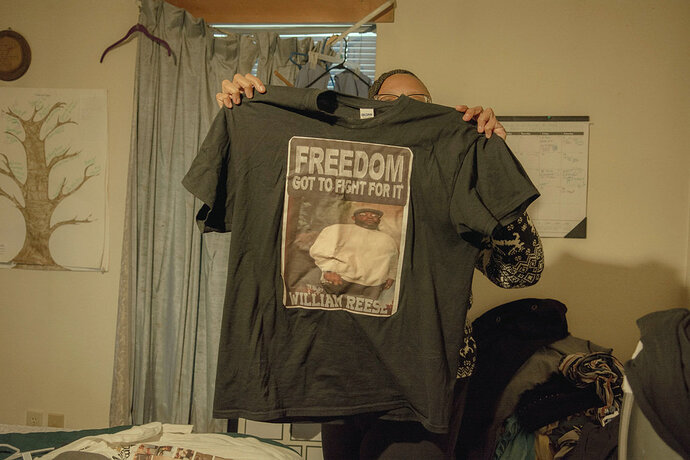I swear
ok i believe you ill take it
Just like gamut did to his gf
It is hard to understand posts with all these censored words
they're all the same word
■■■ ■■■■■■
im calling gamut ret arded over and over (and throwing a few strays at sophie for enabling gamut because thats how triggered ive gotten)
Yes these are the same
Can you post the link to that article please
Yns was actually reading all those iaafr posts
its still got the liberal take
i havent read the whole thing
but its probably the least ■■■■■■■■ version of the liberal take
i generally enjoy reading the new yorker for the least ■■■■■■■■ version of liberal takes on stuff
Every month, Telita Hayes adds nearly $200 to the commissary account for her ex-husband, William Reese, who has been in the Louisiana State Penitentiary for 28 years.
Each prisoner there is given three meals a day and some personal hygiene items, like soap and toothpaste. But when Reese gets hungry between meals, or when his state-issued supplies run out, the commissary money buys him extra food and other necessities.
That is not the only way his imprisonment drains her wallet. On top of the $2,161 she has put in his commissary account so far this year, Hayes has paid $3,586 in charges for talking to him on the phone when she cannot make the hourlong drive to the prison, and even $419 for emails sent through the prison’s email system.
The Bureau of Justice Statistics reckons that the United States spends more than $80 billion each year to keep roughly 2.3 million people behind bars. Many experts say that figure is a gross underestimate, though, because it leaves out myriad hidden costs that are often borne by prisoners and their loved ones, with women overwhelmingly shouldering the financial burden. These costs rise during the holiday season, relatives of people in prison say, as they make more visits, call more often and send more care packages.
National data is rarely gathered on how much prisoners’ families pay into the corrections system. So to better understand the hidden costs of incarceration, The Marshall Project asked people to document their spending. Nearly 200 people responded. Many families said they shell out hundreds of dollars each month to feed, clothe and stay connected to someone behind bars, paying for health care, personal hygiene items and phone calls and other forms of communication.
Hayes pulled out a t-shirt with her ex-husband's photo on it that she made to attend a rodeo.
OLIVIA PERILLO FOR THE MARSHALL PROJECT AND THE NEW YORK TIMES
Hayes said she spends an additional $200 on visits and phone calls around Christmastime. Prison is tough enough; surviving it alone is even harder—especially during the holidays.
“I think the biggest misconception that people have about prison is that ‘the state’ pays for everything,” wrote Connie Martin, 50, from Hazel Park, Michigan. “No one realizes that it’s the friends and families of loved ones that pay.”
I didn’t read it all but at least the opening didn’t just present it like the Canadian viewpoint that Kyle was a school shooter call of duty player that wanted to kill black people
Although they left out that Jacob Blake was kidnapping his children and reached for a knife when he was shot but whatever
Well go on then, let's see it.
Is this Canadian bringing up the prison system now

